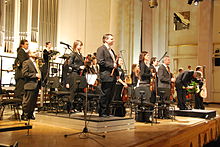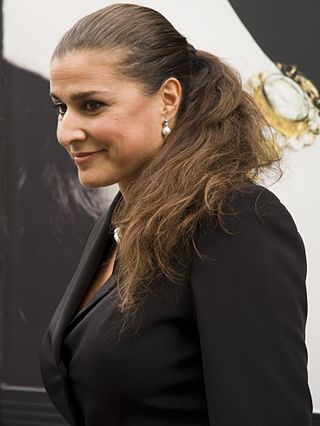
Cecilia BartoliOMRI is an Italian coloratura mezzo-soprano opera singer and recitalist. She is best known for her interpretations of the music of Bellini, Handel, Mozart, Rossini and Vivaldi, as well as for her performances of lesser-known music from the Baroque and Classical period. She is known for singing both soprano and mezzo roles.
The Andrzej Markowski International Festival Wratislavia Cantans is a music festival held every September in Wrocław and Lower Silesia, Poland, organized by the Witold Lutosławski National Forum of Music in Wrocław.
Rappresentatione di anima et di corpo is a musical work by Emilio de' Cavalieri to a libretto by Agostino Manni (1548–1618). With it, Cavalieri regarded himself as the composer of the first opera or oratorio. Whether he was actually the first is subject to some academic debate, as is whether the work is better categorized as an opera or an oratorio. It was first performed in Rome in February 1600 in the Oratorio dei Filippini adjacent to the church of Santa Maria in Vallicella.
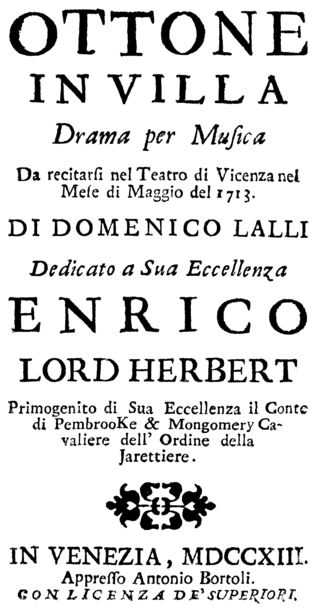
Ottone in villa is an opera in three acts by Antonio Vivaldi to an Italian libretto by Domenico Lalli. It was Vivaldi's first opera and premiered on 17 May 1713 at the Teatro delle Garzerie in Vicenza. Lalli's pastoral drama is set in ancient Rome and was a condensed adaptation of Francesco Maria Piccioli's satirical libretto for Carlo Pallavicino's opera Messalina (1679). However, Lalli changed several of the characters in Piccioli's libretto. Messalina became an invented character, Cleonilla. The Roman Emperor Claudius became another emperor, Otho (Ottone), who had already appeared as a protagonist in Monteverdi's L'incoronazione di Poppea (1642) and in Handel's Agrippina (1709).

Il maestro di cappella is an operatic intermezzo in one act by Domenico Cimarosa. The first known performance of the work was on 2 July 1793 in Berlin, Germany. However, it is likely that this was not the premier production, and music historians believe the opera debuted some time between 1786 and 1792. The author of the opera's libretto is now unknown.
Giuliano Carmignola is an Italian violinist. Born in Treviso, he studied with his father, then with Luigi Ferro at the Venice Conservatory and afterwards with Nathan Milstein and Franco Gulli at the Accademia Chigiana in Siena, Italy and Henryk Szeryng at the Geneva Conservatory. In 1973, he was awarded a prize in the International Paganini Competition in Genoa.
The Diapason d'Or is a recommendation of outstanding (mostly) classical music recordings given by reviewers of Diapason magazine in France, broadly equivalent to "Editor's Choice", "Disc of the Month" in the British Gramophone magazine.
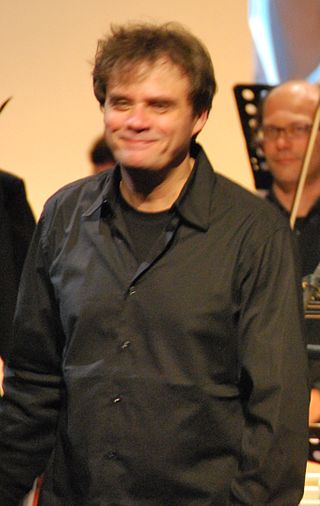
Ottavio Dantone is an Italian conductor and keyboardist particularly noted for his performances of Baroque music. He has been the music director of the Accademia Bizantina in Ravenna since 1996.

Julia Mikhaylovna Lezhneva is a Russian soprano opera singer and recitalist, specializing in soprano and coloratura mezzo-soprano material of the 18th and early 19th century. She studied with Tamara Cherkasova, Irina Zhurina, Elena Obraztsova, Dennis O'Neill and Yvonne Kenny.
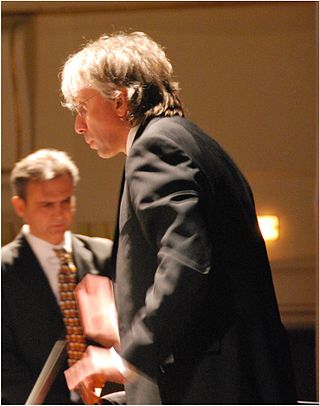
Giovanni Antonini is an Italian conductor and soloist on the recorder and baroque transverse flute. He studied in his native Milan, and attended the Civica Scuola di Musica in that city and the Centre de Musique Ancienne in Geneva. In 1985, along with Luca Pianca, he co-founded Il Giardino Armonico, a pioneering Italian early music ensemble based in Milan.
Omar Zoboli is an Italian oboist, since 1998 till 2018 professor at the Musikhochschule Basel - Switzerland

The chamber orchestra Kammerorchester Basel was founded in Basel, Switzerland, in 1984. In the tradition of Paul Sacher's Basler Kammerorchester, its focus is on both early music and contemporary classical music. The orchestra plays regularly without a conductor with their leading concertmasters Julia Schröder, Daniel Bard and Baptiste Lopez.

Patricia Kopatchinskaja is a Moldovan-Austrian-Swiss violinist.

Anna Prohaska is an Austrian-British lyric soprano. She lives in Berlin.

Agrippina condotta a morire or Dunque sarà pur vero, HWV110, is a dramatic secular cantata for soprano, two violins and continuo, composed by George Frideric Handel while he was in Italy, at some time between 1707 and 1708. The anonymous text depicts Roman empress Agrippina the Younger on the way to her execution, which was ordered by her son, the emperor Nero, whom she had schemed to put on the throne. The cantata is approximately fifteen minutes in length; its title may be translated as "Agrippina condemned to die".

Styriarte is an annual summer festival of classical music in Graz and Styria, Austria, established in 1985. It is focused on Early music, Baroque music and music of the Classical period. Intended to showcase the work of Nikolaus Harnoncourt in his hometown, it grew to locations in the region and survived his death.

La festa d'Imeneo is a serenata by Nicola Porpora, with a libretto by Paolo Rolli. It was premiered at the King's Theatre on 4 May 1736 by the Opera of the Nobility to mark the marriage of Porpora's patron Frederick, Prince of Wales to Augusta of Saxe-Gotha on 27 April that year. The lead role was sung by Senesino, but it proved unsuccessful in the face of Handel's Atalanta, premiered later that month to mark the marriage. Imeneo's opening aria, "Vaghi amori", has been recorded occasionally.

Enrico Onofri is an Italian violinist and conductor specialising in Baroque music.
Pietro Antonacci was an Italian composer. Little is known about his life and only one of his works has survived.
